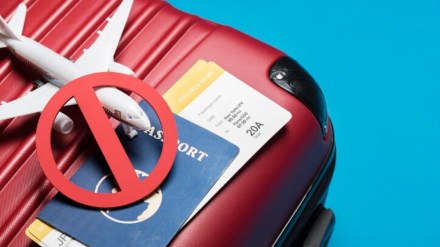Visa fraud has become a pressing issue in India, with many individuals falling victim to scams while seeking better opportunities abroad. According to Delhi Police data, the IGI Airport Police have arrested 108 fraudulent agents over the past six months, a sharp increase from 51 in the same period last year.
Unscrupulous agents and agencies exploit the dreams of people looking to migrate, often leaving them devastated. Here, we explore major visa fraud cases that have recently shaken India and discuss the measures to prevent such frauds in the future.
Amit Kakkar and Healthyway Visa Fraud Case (2011)
In 2011, Amit Kakkar, owner of Healthyway Immigration in Chandigarh, became notorious for a high-profile visa fraud. Kakkar’s company promised guaranteed visas to Canada, the U.S., and Australia, targeting students and professionals. Despite charging exorbitant fees and promising fast processing, the operation was a scam. Victims were left with fake or unprocessed visas, leading to Kakkar’s arrest and highlighting the risks of fraudulent immigration agents. While Kakkar was still facing charges and trial, he went on to found a proxy firm with the name of Easy Visa Education, again running the same modus operandi.
Chandigarh’s Fake Visa Racket (2018)
In 2018, Chandigarh was at the centre of a large visa fraud scandal. A network of travel agents was caught issuing fake visas and forging documents for individuals hoping to migrate to Canada, the U.S., and Australia. The agents, who charged high fees and promised quick processing, duped their victims, who later faced detainment or entry denial at their destinations.
To combat visa fraud effectively, several measures can be implemented
Strengthen Verification Processes
Immigration authorities and visa issuing bodies should employ more rigorous verification processes to authenticate documents and applications. Regularly cross-check visa applications with the issuing authorities of the destination countries to prevent fraudulent documents from being processed.
Increase Awareness and Education
Government should launch educational campaigns to inform potential migrants about common visa fraud tactics and how to recognise them. Conduct workshops for students and professionals about safe practices when dealing with visa and immigration services.
Regulate and Monitor Agents and Agencies
Implement strict licensing requirements for immigration consultants and travel agencies to ensure they are legitimate and adhere to ethical practices. Conduct regular audits of registered agencies and agents to ensure compliance with regulations and prevent fraudulent activities.
Improve Legal Framework and Enforcement
Strengthen laws and penalties related to visa fraud to deter fraudsters and protect victims. Establish specialised task forces within law enforcement to focus on investigating and prosecuting visa fraud cases.
Promote Digital and Transparent Processes
Use secure, transparent online application systems that include features like real-time tracking and verification to reduce the risk of fraud. Explore the use of blockchain technology for secure and tamper-proof record-keeping of visa applications and approvals.
By implementing these measures, India can significantly reduce the incidence of visa fraud and protect individuals from falling victim to scams.
